Healthcare professionals devoted to the patients in their care are in some cases actually making them sicker, due to poor handwashing practices that can lead to the spread of bacteria, fungi and other microorganisms.
To combat this problem, Israeli startup Soapy has created a smart handwashing stand that guides doctors and nurses in properly washing their hands, providing them with immediate feedback to improve their hygiene routine.
According to the World Health Organization (WHO), approximately 70 percent of healthcare workers do not routinely practice hand hygiene. This causes half of all avoidable infections acquired during healthcare delivery, which often involves invasive procedures such as inserting drips and catheters and drawing blood.
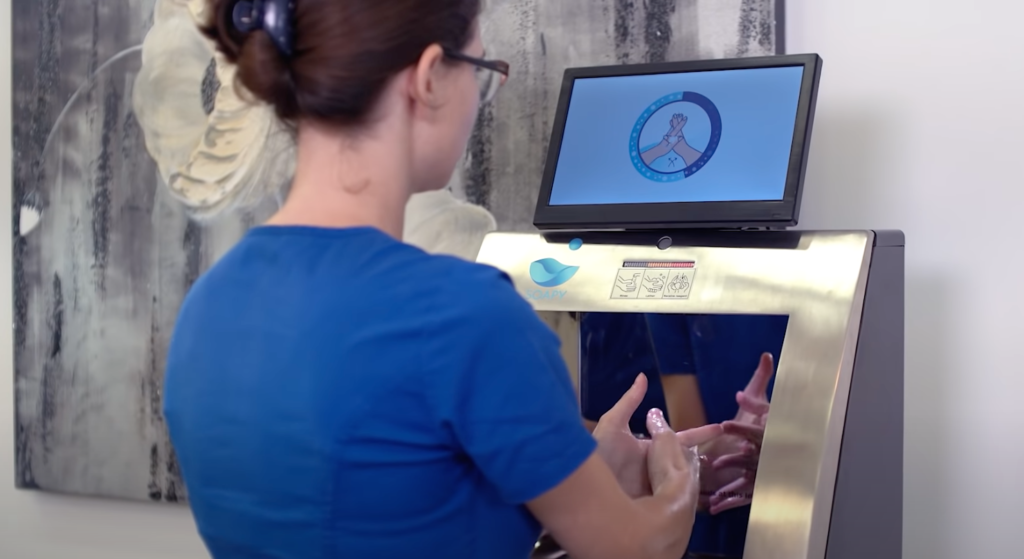
This translates to 3.5 million cases of healthcare-associated infections (HAI) in Europe every year, according to the EU Centre for Disease Prevention and Control. The US Centers for Disease Control and Prevention, meanwhile, reports that every single day, 1 in 31 patients contract at least one HAI.
The Soapy machine looks very similar to the automated services provided in public restrooms. As soon as someone places their hands inside it, it dispenses the exact amount of pre-heated water and soap that they need to lather their hands for 20 seconds – the recommended period for proper handwashing. Once the lathering stage is over, the user gets another 20 seconds’ worth of water to rinse.
A screen display mounted on top of the machine guides the hand washer with a series of easy-to-follow illustrations that adhere to the WHO guidelines on hand hygiene for healthcare professionals.
Once the user finishes washing their hands, the Soapy machine gives their routine a score out of 100.
The score is determined by advanced sensors within the device that analyze a variety of parameters, such as the hand movements used to rub and scrub, and the time spent lathering and rinsing.
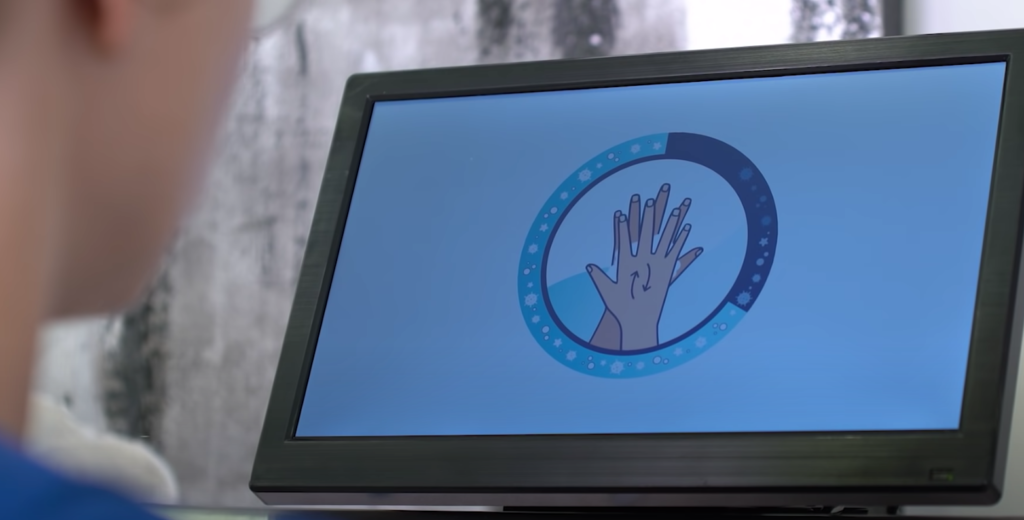
Soapy CEO Max Simonovsky, who has worked in medtech for more than a decade, says he founded the company to help healthcare professionals build better hand-washing habits without taking up their valuable time.
“We are not trying to burden them more and say, ‘No, you stand here and scrub your hands until you’ve done it perfectly’,” he tells NoCamels.
“We’re trying to make healthcare safer and reduce the volume and burden of hospital associated infections as much as possible.”
Simonovsky maintains that because healthcare practitioners wash their hands dozens of times a day, the feedback they get from the Soapy device after every use could help them improve their hygiene even in just a single week.
“That’s the beauty of it,” he says. “It improves your hand hygiene without losing time and without creating extra frustration from the process.”
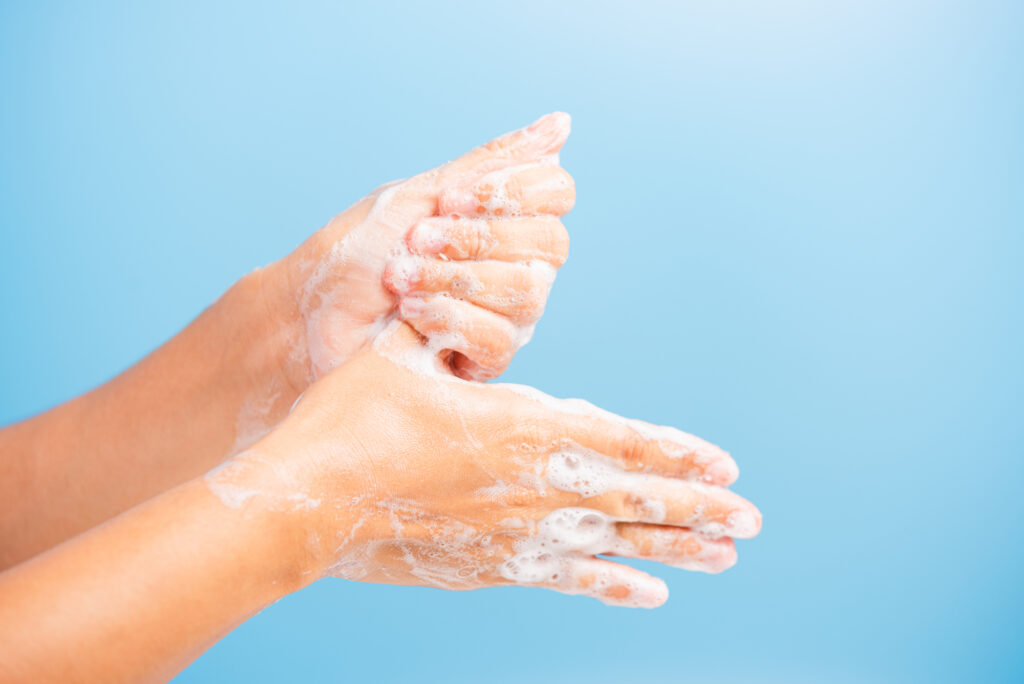
The feedback that the users receive is also sent to a cloud database that contains analytics of all prior handwashing sessions at that healthcare facility.
The data can be accessed by the facility’s administrators as well as infection prevention specialists who will use it to help develop ways to detect and deter the spread of disease in healthcare settings.
Simonovsky says that gathering this data is crucial for healthcare facilities as it is otherwise impossible to observe the hand hygiene of hundreds of workers.
Sign up for our free weekly newsletter
SubscribeAnd, he says, no proper oversight – coupled with hygiene being a low priority for staff who tend to numerous patients every day – leads the percentage of personnel who properly wash their hands to plummet.
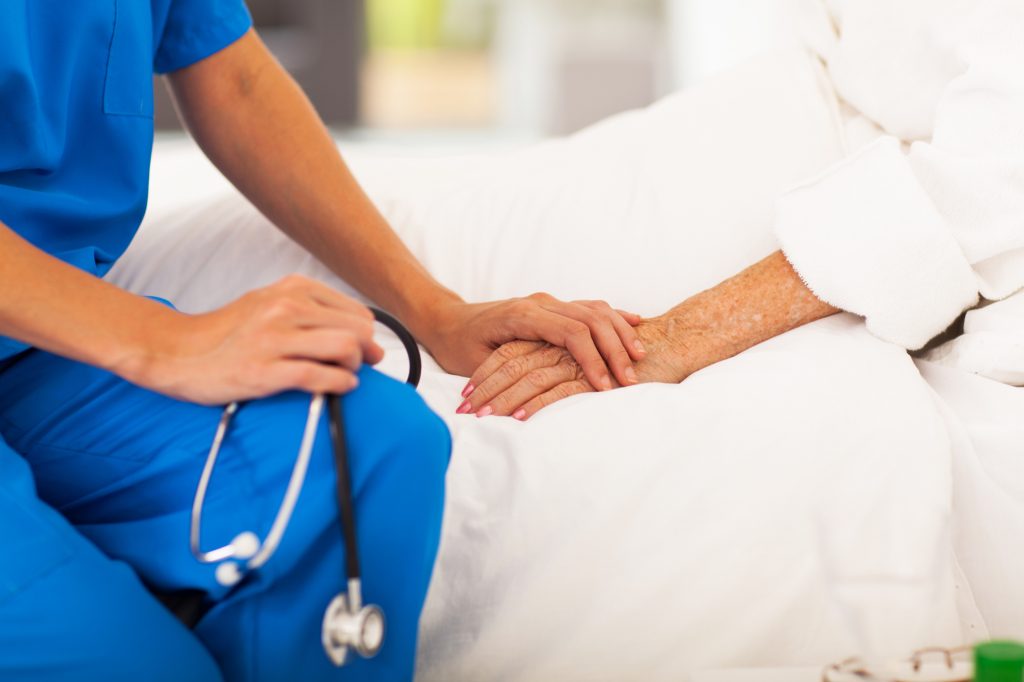
Simonovsky created the company in 2018 after seeing his then-toddler son abandon his carefully taught handwashing habits, after just one occasion in a public playground when water was not available.
“It was the very funny logic of a three-year-old kid,” Simonovsky recalls. “He already had a habit formed, but something happened that caused it to fall apart.”
It led Simonovsky, who also has a degree in medical science, to ponder whether something similar was happening among healthcare practitioners, who according to the Centers for Disease Control and Prevention wash their hands less than 50 percent of the times that they should.
He believed that a device that provides both education and support could be a potential solution.
The startup, which is headquartered at the Science Park in Ness Ziona in central Israel, has already installed multiple handwashing stations in the US, including at facilities belonging to the US Veterans Health Administration and American elderly care institutions.
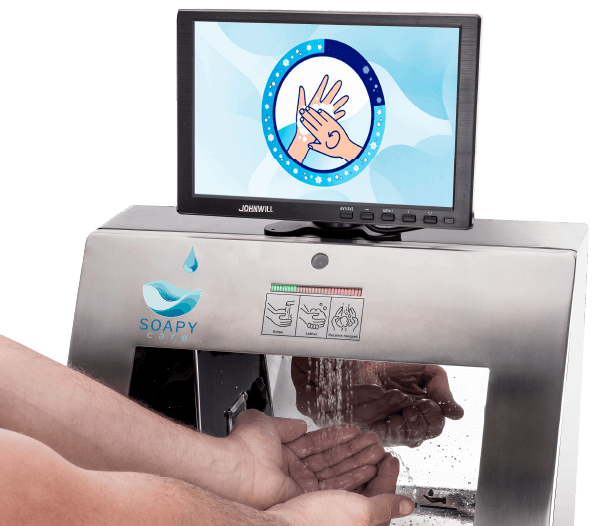
In these facilities, the device is normally installed in nursing stations and the entrances of patient care rooms.
The handwashing stations are also being used outside of the healthcare sector. Food establishments in the northeastern United States, including Burger King and frozen yogurt chain Sweet Frog, are using Soapy in a number of their chains.
“In those facilities, you will see Soapy in the kitchen for the workers, or right in the front in the dining area instead of a regular sink,” says Simonovsky.
The device is also being used internationally, including by numerous Italian hospitals and dozens of schools around the world.
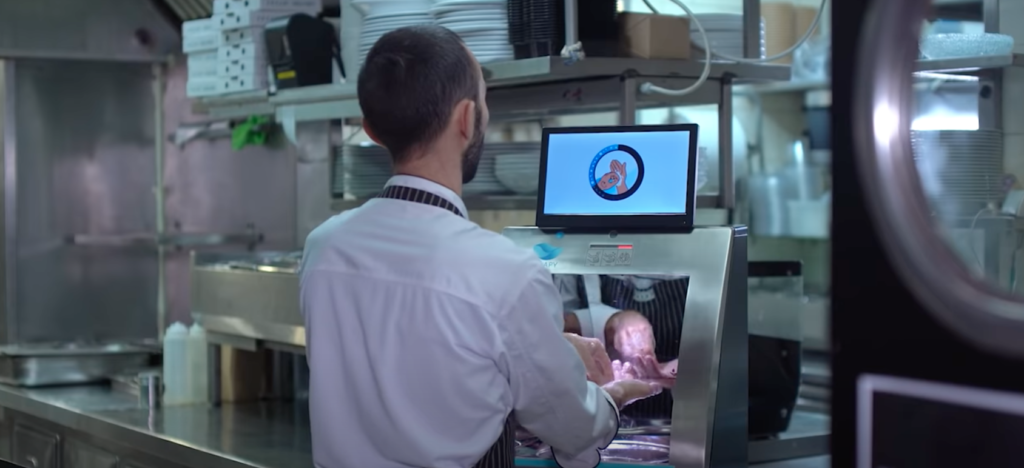
Other companies have produced automated hand washing systems, but Simonovsky says they are both expensive and do not educate users.
Additionally, these automatic hand washing systems waste a lot of water. Soapy, on the other hand, says it is 95 percent more efficient in water consumption than a regular hand washing facility.
“As a result of Soapy – and we see it in all of the facilities where we work – people like to practice hand hygiene more,” says Simonovsky.
“We are not positioning ourselves as a big brother watching what every clinician or nurse is doing in a facility,” he explains. “We are not ensuring, we are supporting.”
Related posts

Editors’ & Readers’ Choice: 10 Favorite NoCamels Articles

Forward Facing: What Does The Future Hold For Israeli High-Tech?

Impact Innovation: Israeli Startups That Could Shape Our Future


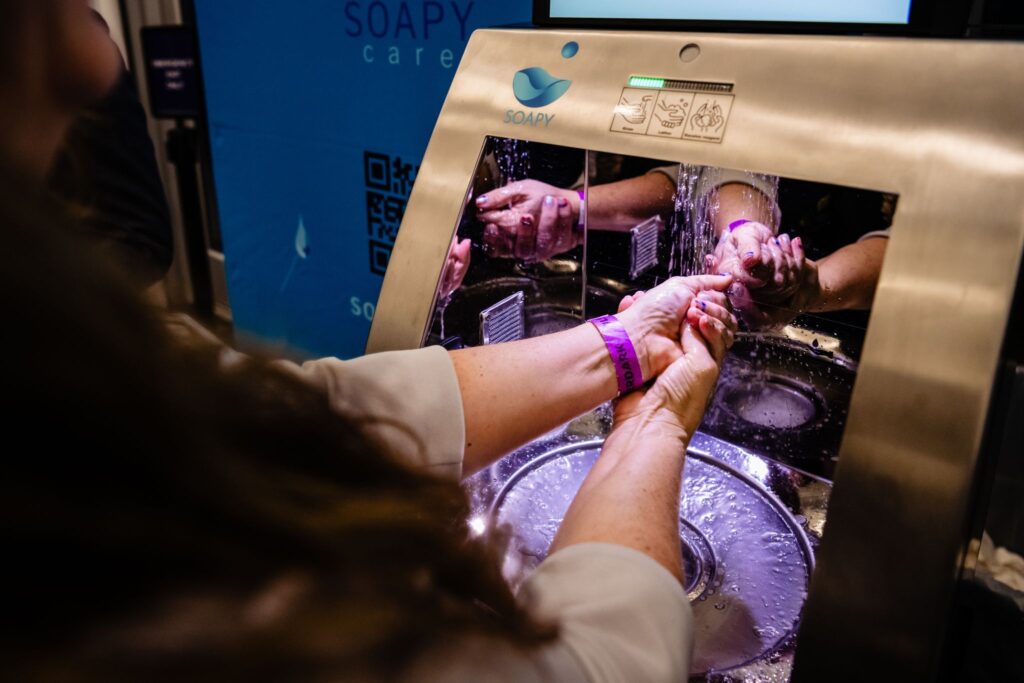

Facebook comments